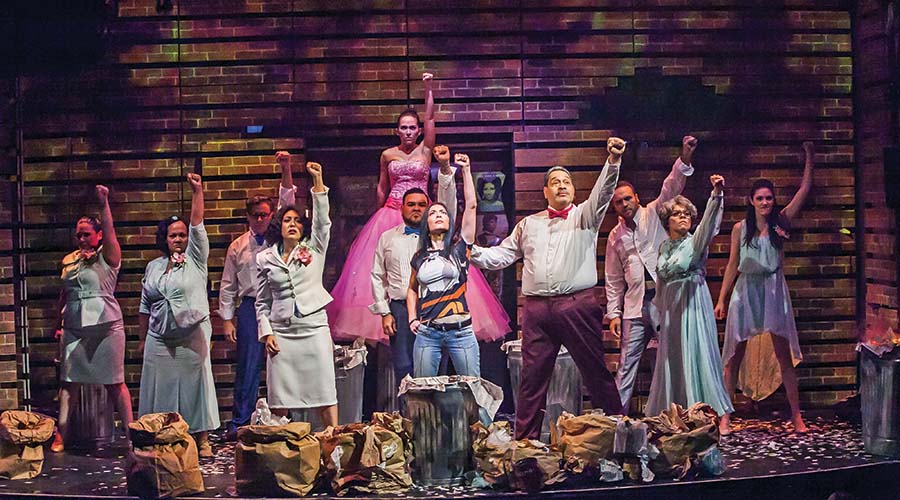The U.S. Is a Latin American Country Too
Multiplicity defines our past and our future, and nowhere is this more true than in the Latinx theatre movement in the U.S.

In many crucial senses, and despite what the recent election results may signify, the United States is a Latin American culture (with all the good and bad postcolonial baggage that entails). So it shouldn’t be surprising that taking root alongside the U.S. resident theatre movement over the past 50 years has been a parallel and occasionally overlapping—and too often overlooked—stream of vibrant Latinx theatre, from Tucson to Off-Broadway, from Seattle to Denver and beyond, in which activist impulses mix with new and old storytelling traditions to produce a uniquely and proudly American theatre tradition. In recent years the emergence of the Latina/o Theatre Commons has served to reflect and amplify the work of this movement, and new generations are picking up the banner and carrying it forward. The stories in this special issue look at where Latinx theatre and artists in the U.S. have been, and where they’ll take us next.
Multiplicity defines our past and our future, and nowhere is this more true than in the Latinx theatre movement in the U.S.
Latinx theatre as we know it in the U.S. is only half a century old, but its roots are deep and its future boundless.
Luis Valdez’s company retains both its Chicano identity and its broader mission. Next: the return of the troupe’s most famous creation, ‘Zoot Suit.’
Founded a decade apart and now merged, Pregones and Puerto Rican Traveling Theatre keep the cart rolling.
The NYC-based initiative isn’t just scoring productions for Latinx playwrights—it’s hoping to make their work bloom and plant seeds for more.
Working Latinx actors discuss how far the theatre industry has come and the ways it can still grow.
As scholars join a freshly revivified and organized Latinx theatre movement, the question of their role is no longer academic.
We started as a lab in the 1980s. Now we run a multi-theatre center dedicated to reflecting L.A.’s diversity.
When Cleveland Public Theatre noticed there were no Latinx theatres in town, they helped create Teatro Publico.
On this week’s podcast, director Lisa Portes stopped by to discuss Latinx theatre in Chicago, and directing work for young audiences. Plus, the editors discuss the responses we’ve been getting from artists about the election.